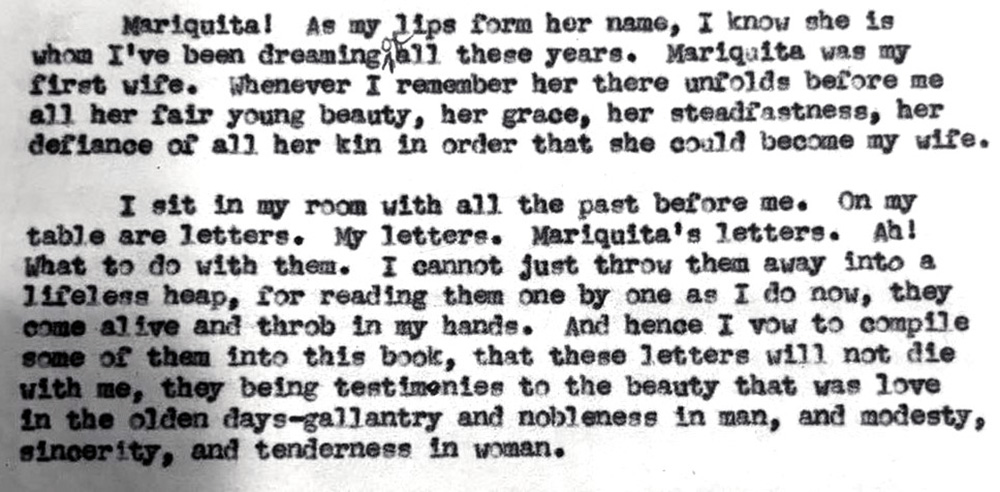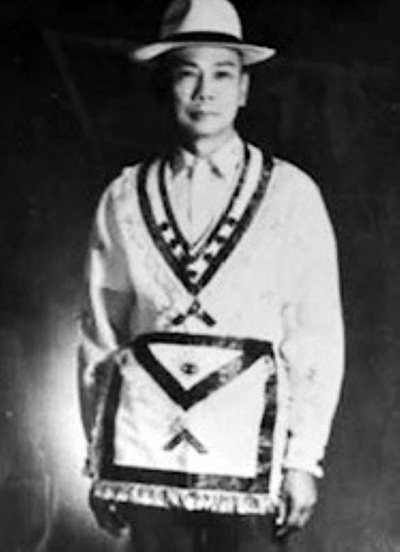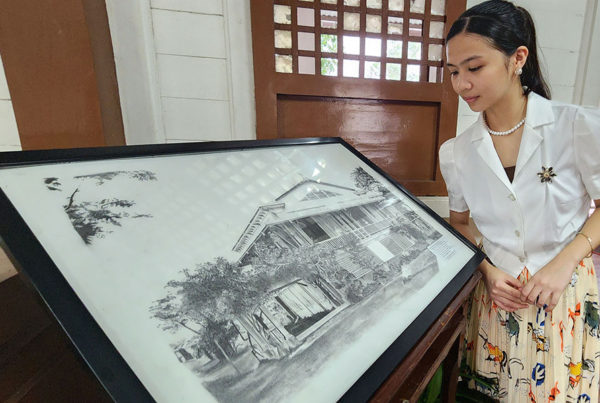
A LOVE SONATA : Based on the conversation with a grandson

By Rex Catubig
SHE was the fair maiden of the Doroteo Vinteres-Juana Galvan lineage that was witness to the ill-fated love affair of Dr Jose Rizal and Leonor Rivera.
Her own love story mirrored the romance of the famous star-crossed lovers, but hers surmounted the challenges that barred the relationship.

MARQUITA AND PATRICIA
Mariquita was the only girl and the youngest in a talented brood of five. Her brother, Alejandro, composed the piano arrangement of the song that Rizal wrote for Leonor.
Maria, or Mariquita as she was endearingly called, was a young lass of seven, when she caught the eye of Faustino Oviedo who was about the same age. But this childhood fancy and budding romance, did not readily blossom, and consisted mostly in “ligaw tingin”.

FAUSTINO
Faustino, was quite smitten and was passionately obsessed, but could not muster the courage to openly profess his love because he felt inferior. He persevered only because it had become obvious Marquita had feelings for him, too.
The Vintereses were “landed gentry”. They owned the houses that Leonor Rivera’s family rented in Dagupan. The Oviedos, on the other hand, lived humbly selling native delicacies.
It was this disparity that formed the barrier between the two hearts.
But love would find its way. After years of holding out, the obstinate Faustino, defied all odds and bravely sought the hand of Marquita in marriage. Mariquita stood behind her man. Naturally, her family was appalled but because Marquita was the family’s darling, her parents ultimately acquiesced.
After twenty three years of longing and unwavering love, Faustino and Mariquita tied the knot on April 17, 1925.
But the union was not fated to last. Just when forever was at hand, the romance took an unexpected turn.

FELICITAS
Mariquita got pregnant fourteen months into the marriage. On March 6, 1927, she gave birth to a baby girl they named Felicitas, the Spanish for great happiness–her coming was a blissful moment. But barely a week after, even before she could cradle her baby, she became ill and was hospitalized. And a few days shy of the first month of her child, in the afternoon of April 1, Mariquita passed away “with tears in her eyes”. It was the cruelest April Fools joke.
Faustino was distraught. He wrote lovingly: “There she lay in her coffin dressed in golden orange… in peaceful repose. And I stood a few paces away, still admiring the girl of my dreams, lovely even in death”.
With his beloved Mariquita gone, he felt a need to memorialize their love. Thus, he wrote:
“As my lips form her name… there unfolds before me, her fair young beauty, her grace, her steadfastness, her defiance of all her kin so she could become my wife”.
“I sit in my room with the past before me. On my table are (our) letters. Reading them, they come alive and throb in my hands…(They)… are testimonies to the beauty of love in the olden days: gallantry and nobleness in man; and modesty and tenderness in woman”.
Naturally, healing happened, and sadness found the way to rediscover joy. The heart cannot grieve forever. It seeks love for solace.
As destiny would have it, two years after the death of his beloved, Faustino found the perfect nest to rest his ailing heart. Mariquita had a best friend, Patricia Mendoza, to whom she confided. At her deathbed, she graciously entrusted the care of her husband to her.
“Please take care of him”, she implored. “No one else could love him as much as I did but you”.
The heart was a happy hunter. Faustino and Patricia were eager prey to love’s promise of forever.










